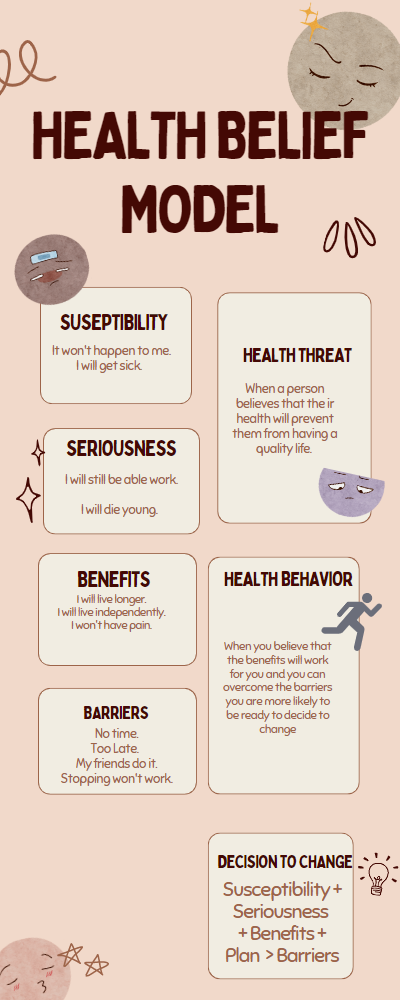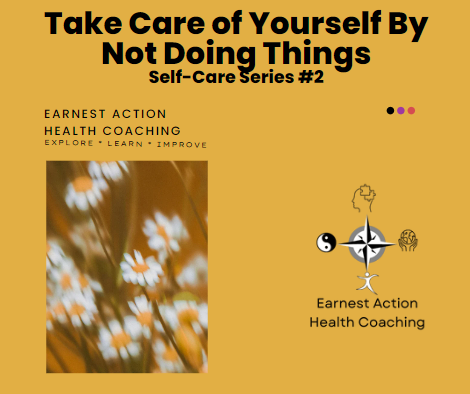Self-Care Series Avoiding Unhealthy Activities
Take Care of Yourself By Not Doing Things is the second post in the self-care series. In the last post, Making Healthy Lifestyle Choices, we talked about choosing to do activities that were healthy. In this post, we will explore how to avoid some things that are unhealthy.
Let’s first define when something is a problem with your health. Misuse of a substance to the extent that it causes harm is unhealthy. First, ask if there are harmful consequences. Second, possessing a compulsive drive that you cannot control. This usually includes a loss of control over the use of substances. “I had one drink and I just could not stop.” Lastly, when your perceptions and denial over the consequences of your addiction are distorted.
I’ll use caffeine as an example now. Most of us can consume caffeine in the amount the FDA considers not harmful (400 milligrams a day—that’s about four or five cups). However, when your doctor tells you you will have a heart attack unless you reduce your intake or you are using energy drinks to stay up for hours without sleep; then continuing to consume high levels would be unhealthy.
Three common unhealthy behaviors are smoking, excessive alcohol consumption, and
substance use disorder.
The choice is up to you, of course, to Take Care of Yourself By Not Doing Things.
The Health Belief Model
I want to explain a bit about the Health Belief Model. This model describes how people get ready to decide to change. This model proposes that we think about health threats in terms of how susceptible and how serious the consequences are. It also says that we assess health behavior in terms of the benefits and whether we think it will work (be effective) for us. Finally, it says we consider the barriers like how difficult it will be for us to implement the change. Then we logically decide based on the threat and the behavior.

The choice is up to you. You can choose to believe you are not helpless or destined to continue.
What is needed?
To be successful a person needs some help.
- Extra Support To Cope with Withdrawal Symptoms and cravings.
- Identification of Behavior Chains. Do you crave a smoke after every meal? Does a stressful day at work cause you to be soothed with alcohol? Health coaches can help you identify and talk through a plan to react differently.
- Acknowledge the shame and stigma surrounding unhealthy behavior.
Smoking
The CDC says smoking has declined from 20% in 2005 to about 12.9% today. As a former smoker, I can testify that it was one of the most challenging unhealthy habits to stop. I believed I needed tobacco to deal with stress. At age 47 I believed too much damage had been done. I was convinced I was destined to fail. Even after trips to emergency care for bronchitis several times, I still smoked.
How did I quit? I stared in the mirror and asked myself for three days straight, “Why do you want to die (faced the threat)? After three days, I committed to stopping. I also got some help understanding that the frequency of quitting was important. There was no shame in smoking as long as I quit without delay. The more often you try in a short period meant better success. A trainer helped me understand that I needed a strategy to break the mechanical habit of moving my hand to my mouth. I carried a fake cigarette and used it for two years. For two months I explained to my friends who smoked that I would not be around. I met them in smoke-free places for several years afterward.
If you are ready or considering quitting Visit smokefree.gov for more ideas.
Excessive Alcohol Consumption and Substance Use Disorder.
Alcohol Use disorder is a “chronic relapsing brain disease characterized by an impaired ability to stop or control alcohol use despite adverse social occupational or health consequences. About 6% of people. About 10% of people admit to using illegal drugs. The good news is most people who drink too much alcohol or have substance use disorder can change their behavior.
Why am I addressing these two at the same time? The health consequences are similar and treatment is often beyond the scope of a Health Coach. While health coaches can help support clients with exploring values and building confidence, in most cases a coach will ask the client’s permission to refer to a medical professional when a client expresses concerns about their alcohol or drug use. The health coach may assist clients with modest means to find an appropriate 12-step program.
Disclaimer. The information provided in this article may not be appropriate for all people. If you are not currently exercising or have or suspect you have conditions like cardiovascular, metabolic, or renal disease, then you should consult your physician before considering making any changes suggested.

